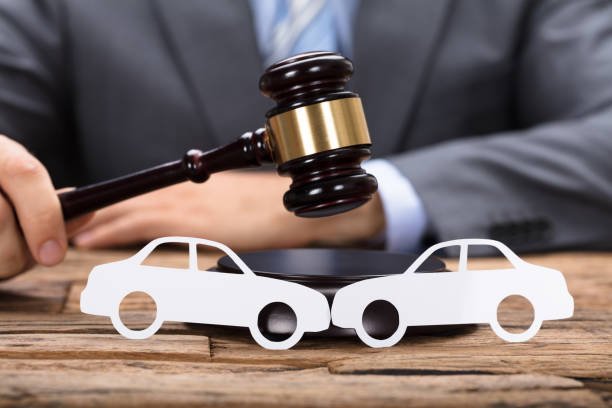Car accidents are unfortunate events that can have significant physical, emotional, and financial repercussions. In the immediate aftermath of a crash, it’s common to feel overwhelmed and unsure of what steps to take next. Understanding your legal rights and the recourse available to you is crucial for navigating this challenging time.
This comprehensive guide aims to provide car accident victims and legal advice seekers with the information needed to protect their interests and seek appropriate compensation.
Immediate Steps to Take After a Crash
The moments following a car accident can be chaotic. However, taking the right actions can make a substantial difference in the outcome of your case. Here are the immediate steps you should follow:
Ensure Safety
- Check for Injuries: The first and foremost priority is to check if anyone is injured. If there are injuries, call emergency services immediately.
- Move to Safety: If it’s safe to do so, move your vehicle out of the way of traffic to prevent further accidents.
Contact Authorities
- Call the Police: It’s important to report the accident to the police, even if it seems minor. A police report can be a critical piece of evidence in your case.
- Document the Scene: Take photographs of the accident scene, vehicle damage, and any visible injuries. These images can be invaluable later on.
Exchange Information
- Driver Information: Exchange names, addresses, phone numbers, and insurance details with the other driver(s) involved.
- Witness Information: If there are any witnesses, collect their contact information as they may be able to provide valuable testimony.
Understanding Legal Recourse for Car Accident Victims
Car accident victims have several legal avenues available to seek compensation for their losses. Here’s an overview of the most common types of legal recourse:
Personal Injury Claims
If you’ve sustained injuries due to the accident, you may be entitled to file a personal injury claim. This type of claim seeks compensation for:
- Medical Expenses: Costs associated with hospital stays, surgeries, medications, and ongoing medical treatment.
- Lost Wages: Compensation for earnings lost due to the inability to work while recovering.
- Pain and Suffering: Damages for physical pain and emotional distress resulting from the accident.
Property Damage Claims
In addition to personal injuries, you can seek compensation for damages to your vehicle and other personal property. This includes:
- Vehicle Repair or Replacement: Costs for repairing your vehicle or replacing it if it’s totaled.
- Personal Belongings: Compensation for items damaged in the crash, such as electronics or personal items in the vehicle.
Navigating the Insurance Process
Dealing with insurance companies can be complex and daunting. Here are some key steps to help you navigate the process:
Filing a Claim
- Notify Your Insurance Company: Report the accident to your insurer as soon as possible. Provide them with all necessary information and documentation.
- Cooperate with the Investigation: Be honest and cooperative with your insurance company’s investigation, but be cautious about providing recorded statements without legal advice.
Understanding Policy Limits
- Review Your Policy: Understand the coverage limits and terms of your insurance policy. This will help you know what to expect in terms of compensation.
- Dealing with Adjusters: Insurance adjusters may try to minimize the payout. Being well-informed and having documentation to support your claim can help you negotiate effectively.
The Legal Process: From Attorney to Lawsuit
If insurance negotiations don’t result in a satisfactory settlement, you may need to pursue legal action. Here’s what the process typically involves:
Finding the Right Attorney
- Specialization: Look for an attorney who specializes in car accident and personal injury law.
- Consultations: Many auto accident lawyers such as those in Rose Park offer free initial consultations to discuss your case and determine if they can help.
Stages of a Lawsuit
- Filing the Complaint: Your attorney will file a legal complaint outlining your case and the damages you seek.
- Discovery Phase: Both sides gather evidence, including documents, depositions, and witness testimonies.
- Mediation and Negotiation: Often, cases are settled out of court through mediation or negotiation.
- Trial: If a settlement isn’t reached, the case goes to trial where a judge or jury decides the outcome.
Common Legal Questions and Misconceptions
Do I Need a Lawyer for a Minor Accident?
Even in minor accidents, having legal representation can ensure that your rights are protected and that you receive fair compensation.
What If the Other Driver Is Uninsured?
There are legal options available, such as uninsured motorist coverage, which can provide compensation in these situations.
Can I Still File a Claim if I Was Partially at Fault?
Yes, many states allow for comparative negligence, meaning you can still recover damages proportionate to your level of fault.
Conclusion
Understanding your rights and the legal recourse available after a car accident is essential for protecting yourself and securing the compensation you deserve. By taking immediate action, navigating the insurance process effectively, and seeking professional legal advice, you can confidently move forward and focus on your recovery.
